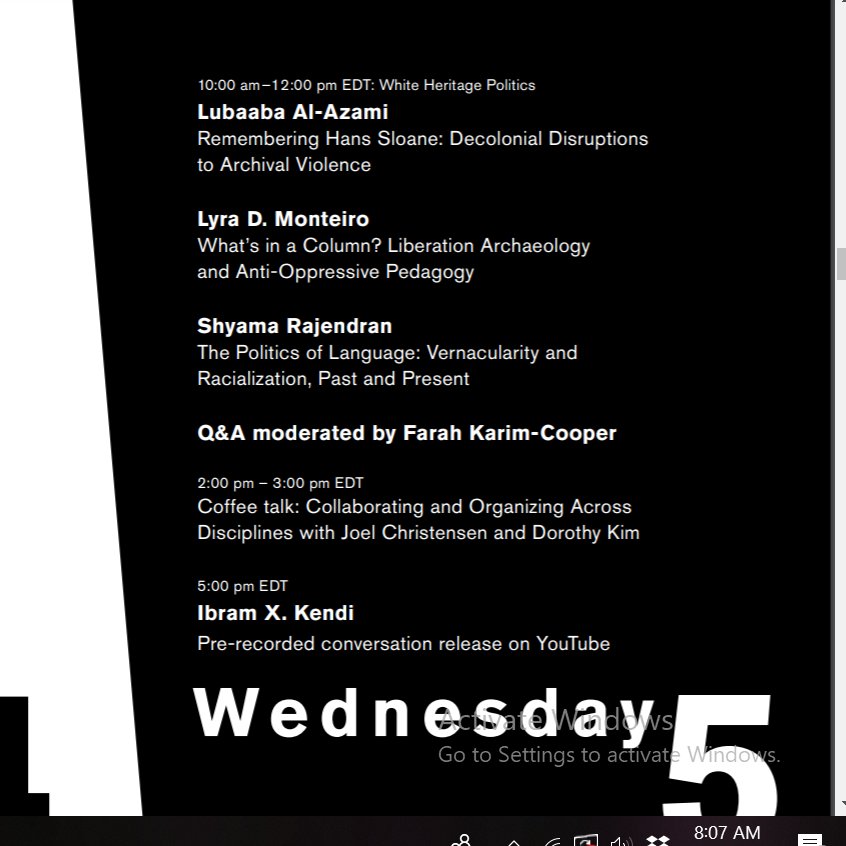
I was super excited to get this article published with @LAReviewofBooks written with @SarahEBond to launch our new #PastsImperfect initiative. The feedback has been great, and it hasn't all been positive
lareviewofbooks.org/article/the-ma…
lareviewofbooks.org/article/the-ma…
we've received a couple of questions/points that I'd like to mention because they point to some of the challenges of (1) taking academic discussions public and (2) dealing with dearly held topics
1. A few people complained the essay was superficial. They're not wrong! You can't cover nearly 3 generations of scholarship and hundreds of books in a short column
1a public scholarship like this offers an entry into a debate, outlines important themes, and makes an argument.
1b. Scholarly arguments should be invitations to discussions not final points. Final points are for tombstones.
1b. Scholarly arguments should be invitations to discussions not final points. Final points are for tombstones.
1c. Our argument simplifies things.
Yes, see 1a. above.
Yes, see 1a. above.
2. Our article is more about the impact of Campbell's work and not his actual work. Well, this is true! Campbell is a metonym for what happens with his work.
But I am not keen on separting the two because I don't think authors are that important.
sententiaeantiquae.com/2019/12/20/har…
But I am not keen on separting the two because I don't think authors are that important.
sententiaeantiquae.com/2019/12/20/har…
2a. Authors and their context are indelibly connected. Saying that Campbell didn't mean what other people did with his work is fine, but it ignores how much he profited from and championed what other people did with his work
3. Several people were like "you say X" but Campbell does in vol. 3 of his work. That's fine. But that's like saying that if I only dived deeper into their catalogue I would find out Maroon 5 aren't talentless schmucks.
Yes, the whole oeuvre matters, reception and use do too
Yes, the whole oeuvre matters, reception and use do too
4. Others were like, this is allegory, Campbell knew that because of Jung and Freud, etc.
Archetypal thinking IS the problem. Jungian approaches to myth are reductive, patriarchal, misognyistic, heteronormative, etc. etc.
Archetypal thinking IS the problem. Jungian approaches to myth are reductive, patriarchal, misognyistic, heteronormative, etc. etc.
4a. A longer version of the article talked about this: post-structuralist approaches to narrative show how limiting and damaging the entire archetypal approach is. It reduces difference and erases narratives
5. Various versions of my is universal, can't you see it.
There's an essentialism to the assertion that certain myths are universal that ignores the process of selection that mythographers and snakeoil salesmen like Campbell and Peterson have perpetrated
There's an essentialism to the assertion that certain myths are universal that ignores the process of selection that mythographers and snakeoil salesmen like Campbell and Peterson have perpetrated
5a. If culture A is raised on stories XYZ and then members of Culture A look at Cultures 123 for examples of things they recognize they will find XYZ even if it isn't there. it is a type of confirmation bias
6. Several quailed at the equation of Campbell/Jungian dude-central selfishness with capitalism. I can't live another day watching mask protests and knowing about how social discourse works while listening to said nonsense
7. Some of our examples are wrong because the authors (e.g. Robert Jordan) were following the heroic pattern.
part of the damaging discourse about the monomyth is that it has been so successful as a narrative that it chokes out other possible tales and lives
part of the damaging discourse about the monomyth is that it has been so successful as a narrative that it chokes out other possible tales and lives
To be clear, I have no problem with emails enumerating our wrongness, or tweets disagreeing. I say thanks for the former and sometimes even RT the latter.
I just wanted to say that @SarahEBond wrote the piece with wide eyes, taking some shortcuts to get to the main point
I just wanted to say that @SarahEBond wrote the piece with wide eyes, taking some shortcuts to get to the main point
And I might wake up and change my mind tomorrow. Although, given the screaming fools protesting COVID safety precautions nationwide, it is unlikely.
Sign up for the #PastsImperfect newsletter for more chaos pastsimperfect.substack.com/p/coming-soon?…
Sign up for the #PastsImperfect newsletter for more chaos pastsimperfect.substack.com/p/coming-soon?…
And check out @postclassics thread by @theoctopiehole on Lizzo's and Cardi B's Rumor video. There's a lot more insight there than the comments on our article
https://twitter.com/postclassics/status/1426186211706740741?s=20
• • •
Missing some Tweet in this thread? You can try to
force a refresh





